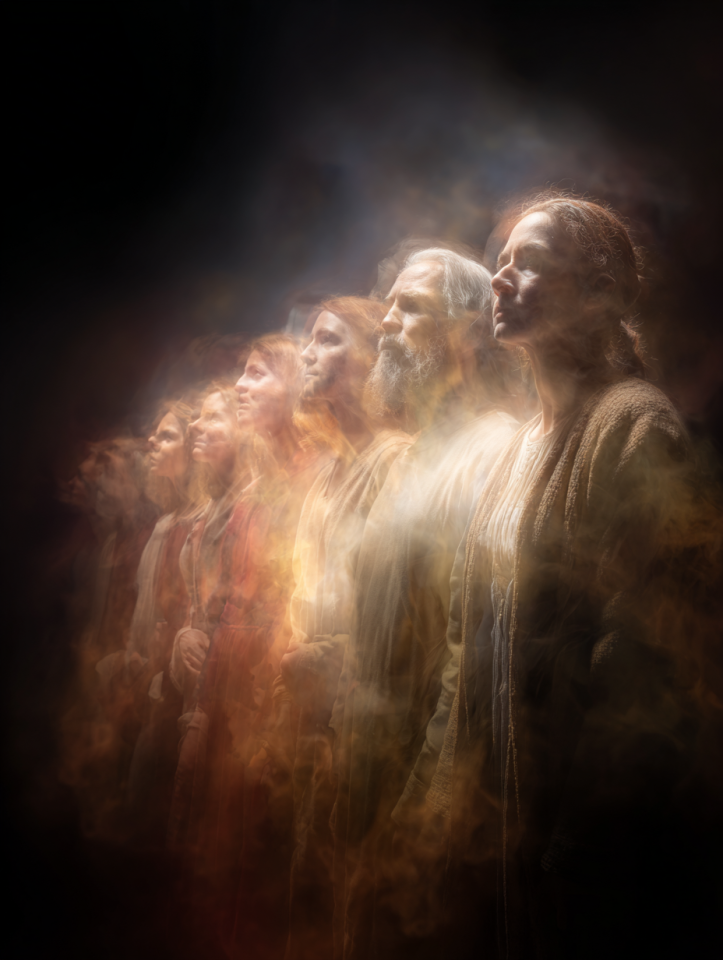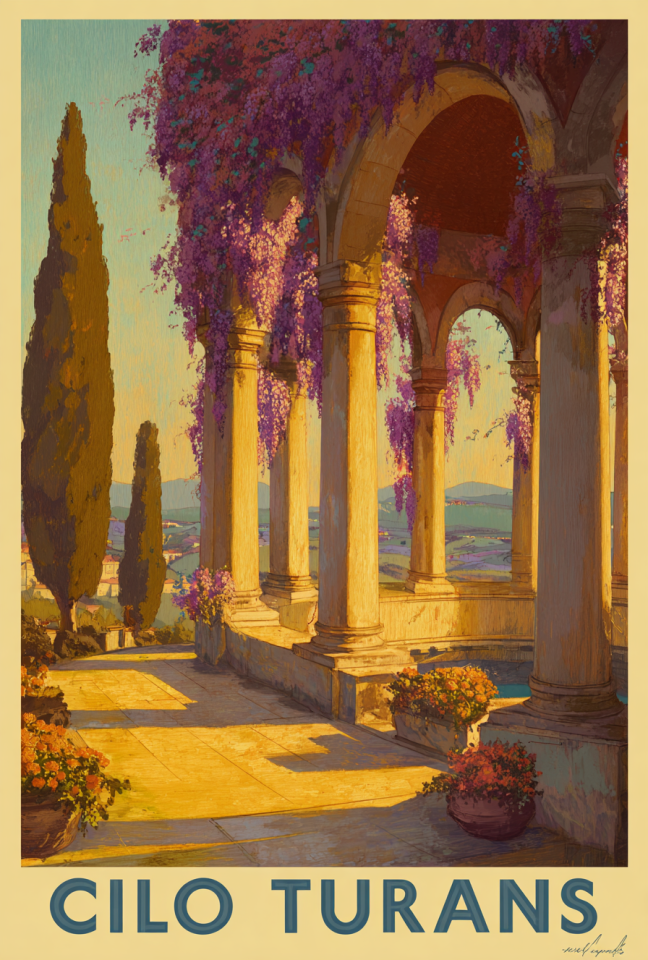Cilθ Turanś is the divine sanctuary of love’s essence — a realm of soft brilliance and sacred allure where beauty is not surface, but resonance. Overseen by Turan the Etruscan goddess of love, vitality, and divine seduction, this realm exists not for pleasure alone, but for the harmonic awakening of being. Within Cilθ Turanś, identity and desire fold inward, and the soul reawakens to its truest longing — connection, expression, and the joy of being seen. This is not a place of judgment or transformation; it is a pause in the eternal — a place where the divine permits the heart to breathe freely. Once mirrored in sacred groves and mystery rites, Cilθ Turanś now lies hidden behind the Veil, accessible only to those who move with grace and memory.
Landscape and Essence
Cilθ Turanś is a realm of perpetual dusk and bloom — where the light is always golden, and the air carries the scent of fig, cypress, and warm skin. Rolling meadows stretch between curved marble porticos, their columns woven with flowering vines that never fade. Shallow pools reflect stars even during the day, and flocks of pale birds move in slow spirals overhead. The realm is never still — the wind carries whispers, fabrics dance with no visible cause, and petals fall in perfect rhythm. Sounds are soft: laughter, lute strings, running water. It is not a realm of illusions, but of invitation — everything gently coaxing the soul toward honesty and ease.
Inhabitants
Cilθ Turanś is home to attendants of joy and renewal — divine figures and ancestral spirits who guide visitors through longing, rest, and reconnection. At its center is Turan herself, radiant and composed, appearing in different forms depending on who seeks her. Sometimes a youthful maiden with eyes like firelight; other times, a cloaked matron, her voice warm with sorrow and wisdom. She is not coy — she is exacting, and none may remain in her realm without shedding pretense. Spirits who dwell here are often those who died in love, or who lived lives of beauty and devotion. They do not rule or judge, but sing, tend, and remember.
Cultural Significance
Among the Etruscans, Turan was a core divine force and Cilθ Turanś was the hidden garden where her essence resided. Temples to Turan were built near springs or within groves, and rites of union, fertility, and mourning often invoked this realm through chant and incense. Mirrors — sacred to Turan — were tools for meditating upon the self as vessel of the divine. Cilθ Turanś was seen not as reward or paradise, but as a necessary counterbalance to labor, war, and duty. As Roman hegemony absorbed and redefined Etruscan practice, the name of the realm faded — but the impulse toward beauty, ritual sensuality, and the sacredness of love lived on.
Role in the Divine Realm
Cilθ Turanś is the realm of sacred reprieve and heart-alignment. It does not fuel the machinery of fate or divine politics — it restores. Here, soul and body remember their connection, and dissonance softens. It is a relational space where divine beings sometimes come to grieve, to dream, or to meet outside the constraints of war or duty. Cilθ Turanś is a place where intimacy is not indulgence, but medicine. It is also where certain divine pairings — or partings — are negotiated, and where longing becomes a creative force instead of a wound.
Interactions with Other Realms
Cilθ Turanś rarely interacted directly with the Mortal Realm — it moved like a perfume, or the sound of lyre heard on the wind. Still, in ancient Etruria, rites of love, dressing, and mourning were infused with its energy. Sacred groves served as thin places, especially when rituals involved mirrors, oil, or paired offerings. With the decline of these rituals and the erosion of the feminine divine in civic life, the Veil thickened. Cilθ Turanś withdrew, not in grief, but in discretion. Only divine figures aligned with affection, beauty, or sacred memory may cross freely now. For mortals, entry is only possible through utter vulnerability and complete self-acceptance.
















